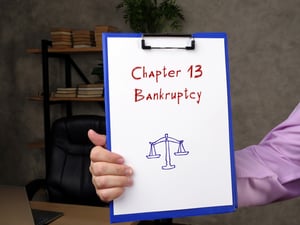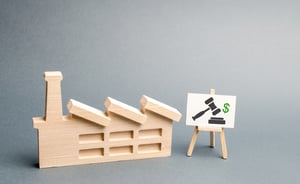Can I Modify My Mortgage During My Chapter 13 Bankruptcy?
If you are struggling with making your mortgage payments on time, or if you are facing an impending foreclosure on your house, a Chapter 13 bankruptcy may be the type of bankruptcy that will best suit your needs. A Chapter 13 bankruptcy involves an affordable, monthly payment plan. This monthly payment plan can cure mortgage arrears, and at the same time, protect your house from a foreclosure. A Chapter 13 bankruptcy is a structured and organized way to pay back a small portion of your debt, cure mortgage arrears, and stop a foreclosure; meanwhile, you are able to keep all of your assets and come out of the bankruptcy in 3-5 years debt free. In a Chapter 13 bankruptcy, you will make monthly, affordable payments to your bankruptcy trustee’s office, which can be set up to monthly ACH withdrawals from a bank account of your choice. That monthly, affordable payment can allow you to pay down any mortgage arrears that you may have.
While you are paying your mortgage arrears in the Chapter 13 bankruptcy, it may be beneficial to work with your home lender to modify your mortgage. Typically, a loan modification application will have to be completed, so that the home lender can determine whether they are willing to accept a monthly payment from you, that you can afford. It could take up to several weeks or even months for a home lender to approve or deny a loan modification application. Therefore, because the loan modification process can take some time, filing a Chapter 13 simultaneously while a loan modification is in progress, or before a loan modification is initiated, is beneficial, in that it provides additional protection by preventing a foreclosure process, and it also prevents the home lender from charging additional late fees.
Modifying your home mortgage during a Chapter 13 bankruptcy can also be beneficial because your interest rate can be altered, the terms can be changed so that your monthly payments are lower, past due payments can be added into the principal of the loan, and missed payments or a portion of the principal can be forgiven. A loan modification can also extend the repayment period. A Chapter 13 bankruptcy will also keep further mortgage debt from accumulating. After a loan modification is complete, the loan modification must be approved by the bankruptcy court and in effect, your Chapter 13 payment plan will be modified.
CALL NOW FOR A FREE STRATEGY SESSION FROM A MN BANKRUPTCY LAWYER AT LIFEBACK LAW FIRM
To learn more about the process of a mortgage modification during a Chapter 13 bankruptcy, and how this may affect your Chapter 13 payment plan, you should consult with an experienced bankruptcy attorney. See us at LifeBackLaw.com!






